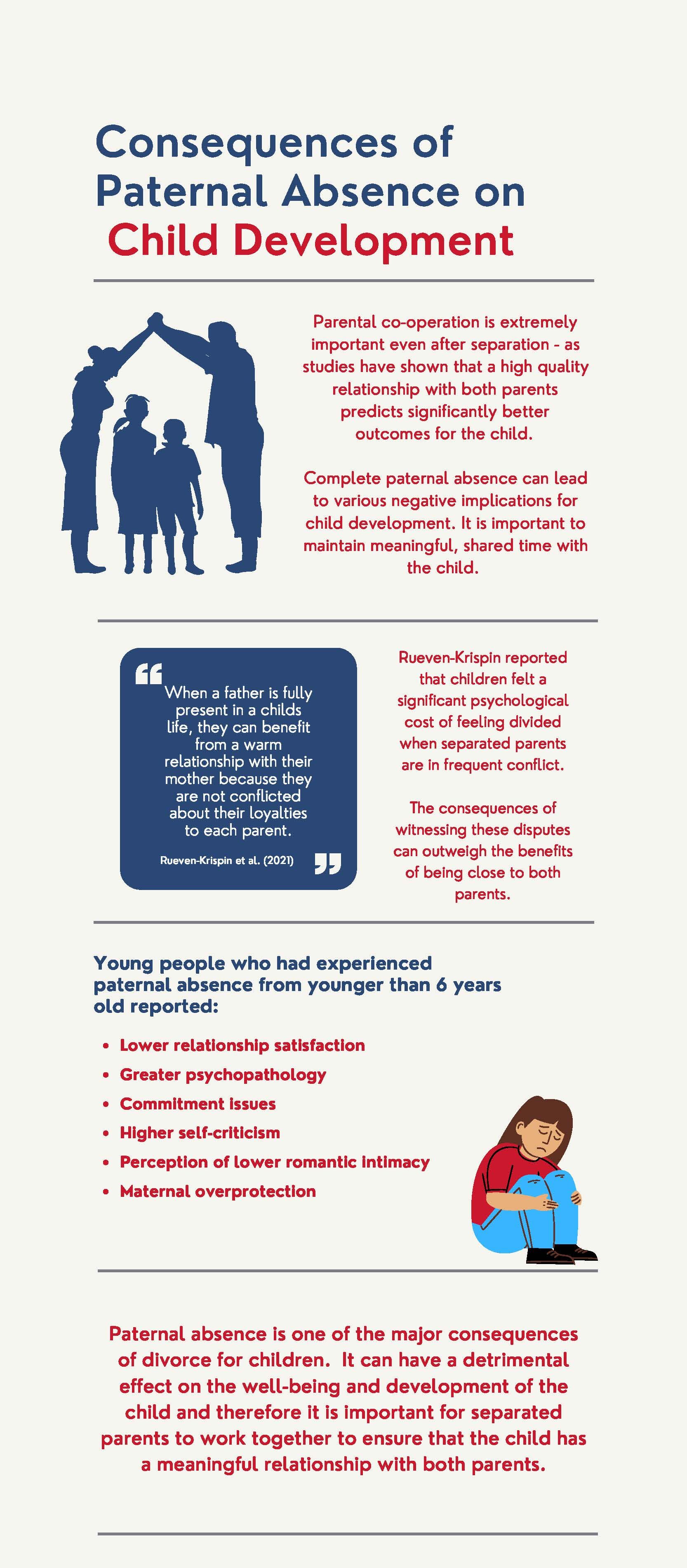
This year, a study was published by Reuven-Krispin and colleagues investigating the implications of father absence throughout childhood before age 6 on the well-being and romantic relationships of young adults. This study rightfully criticised previous studies for not successfully implementing the amount of father absence as a variable in analysis, as there can be significantly different effects observed in partial father absence than complete father absence depending on the quality of the relationship.
Previous research has shown that frequency alone is not a good predictor of child outcomes, but it is also determined by the quality of the time spent together. Frequency and quality are often correlated as parents will be able to build a more meaningful relationship with their child if they are permitted to see the child on a regular basis. If there is a partial father absence, and the quality of the relationship with the child is poor, it can be predictive of poorer outcomes for the child. This paper highlights the consequences of complete and partial father absence and is successful in providing empirical evidence to encourage meaningful shared parenting where it is possible to ensure the healthy development of the child.
This study highlights the recommendations made by policy makers that the child should be in continuing contact with both parents. This study found that young adults who had partial paternal absence before age 6 had various negative long-term outcomes such as
- Lower relationship satisfaction
- Perception of lower romantic intimacy
- Greater psychopathology
- Commitment issues
The complete father-absence group also demonstrated
- Higher self-criticism
- Frequent reports of maternal overprotection
These findings highlight the importance of parental co-operation in order to allow the father to develop a meaningful relationship with the child through frequent visits. This paper also suggests that children of parents who have a low-conflict relationship tend to be more confident in asking for emotional help to resolve distress.
Consequently, when a father is fully present in their child’s life, they benefit from also having a warm relationship to their mother as they are not conflicted about their loyalties to each parent. There have been reports of a significant psychological cost of feeling divided to the child in high-conflict families. It can be concluded that it is in the greatest interest of each parent to maintain a stable relationship with each other to alleviate child distress and encourage better long-term outcomes for their child.